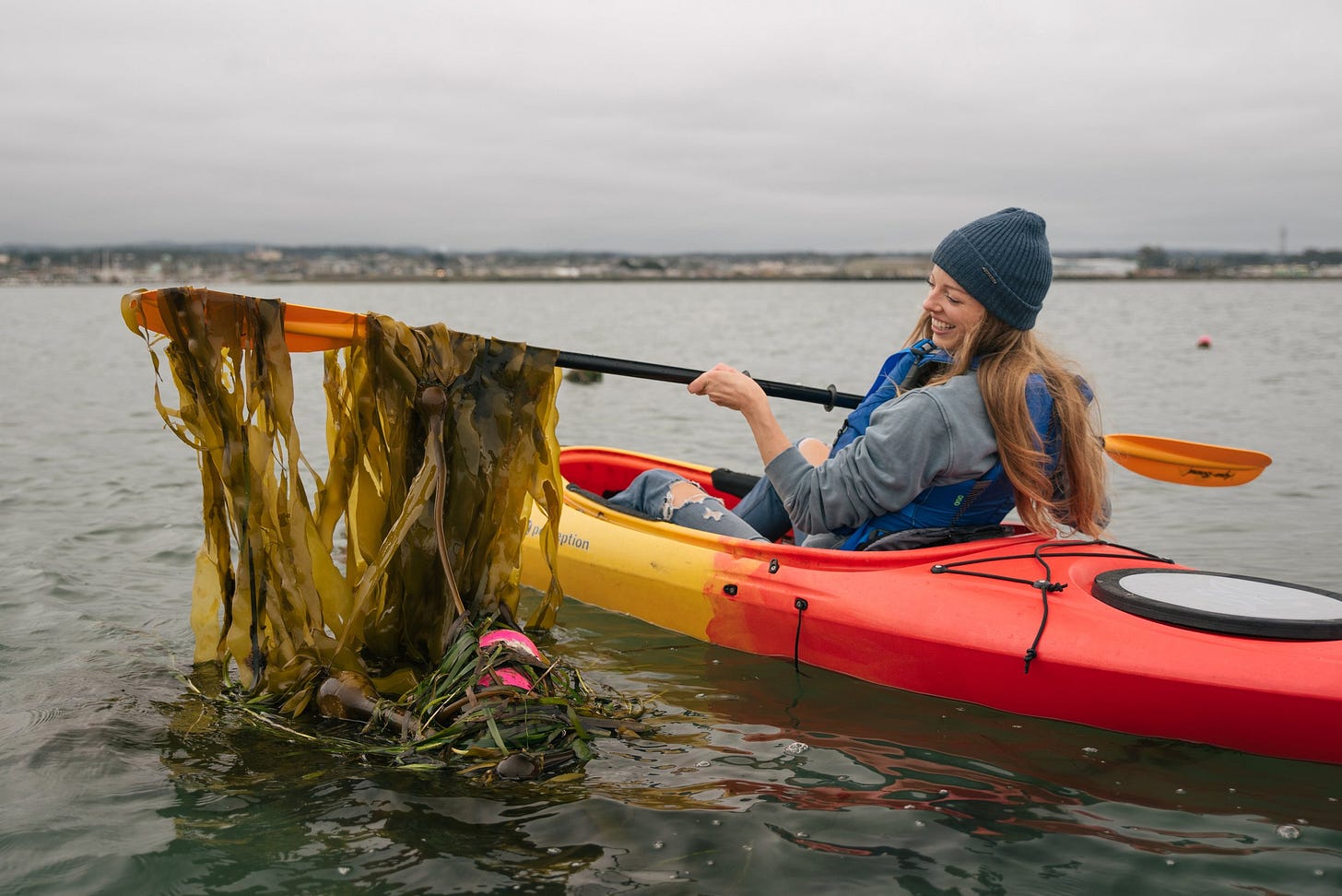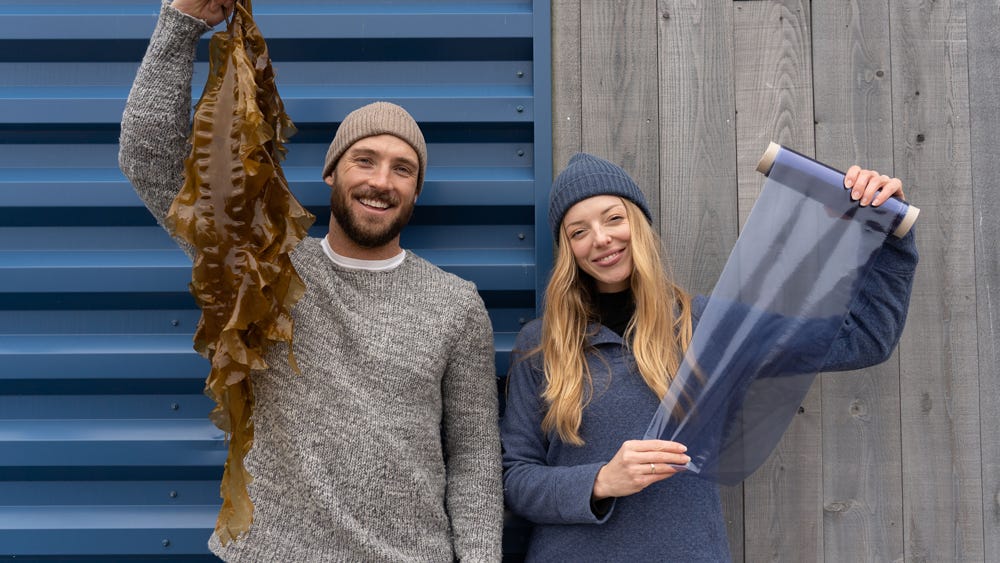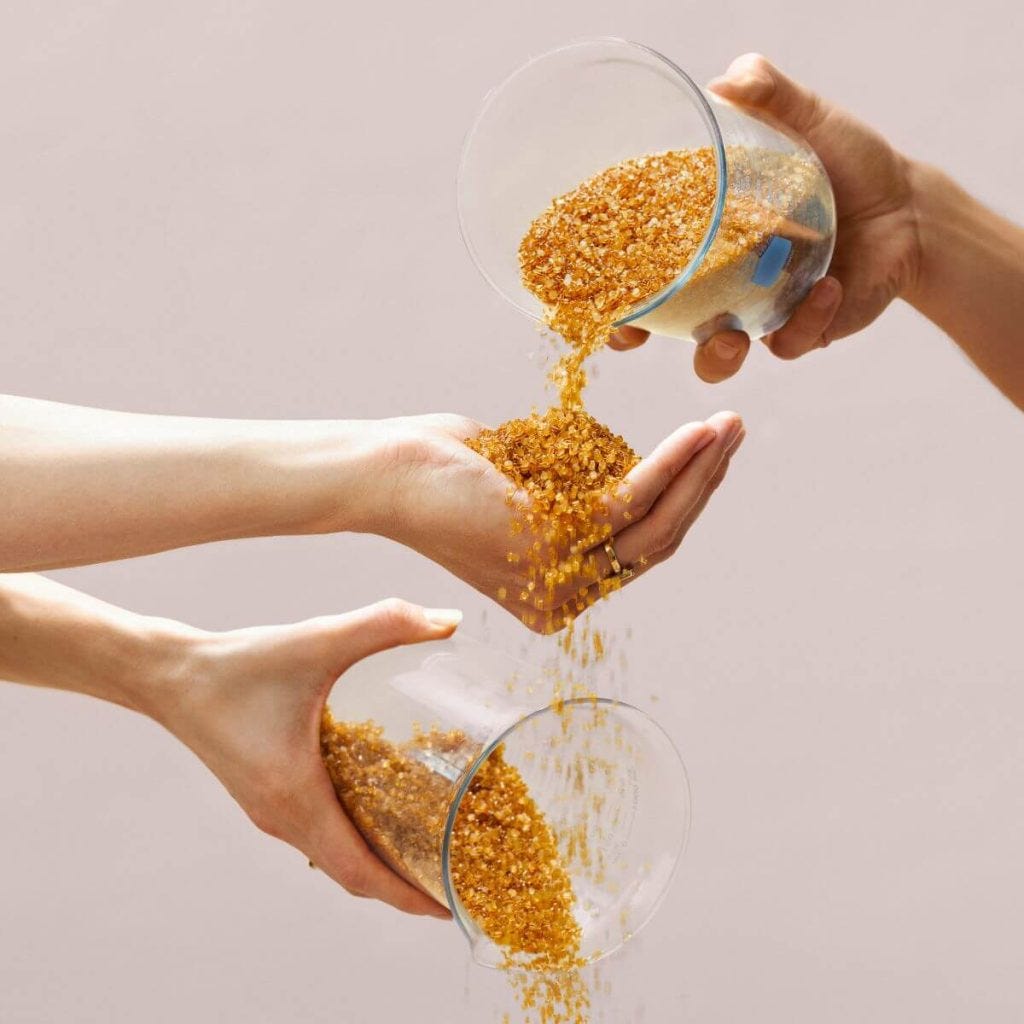Portfolio Spotlight: Sway
Sway is harnessing seaweed to introduce an innovative alternative to harmful synthetic plastics, and replenish the planet in the process.
In Part Three of our June blog series dedicated to the opportunity of Ocean-Based Investing (check here for Part One and Two), we’ll be spotlighting another one of Third Nature Investments’ portfolio companies – Sway!
Behind every story is often a bigger story. You might have seen headlines about oil companies diverting money and effort away from gasoline. Knowing how much carbon emissions are generated from cars, trucks, and jets – and the direct impact that has on global warming – that probably seems like the progress we’ve been waiting for. Cue the green transition!
The problem, as Barron’s aptly recently reported, is that oil companies, who are feeling the pressure of declining gasoline demand, are instead now funneling fossil fuels (and their well-established assets and infrastructure) toward chemical plants, and more specifically: plastic production.
But with plastic production wreaking havoc on our environment, and coating our planet and our bodies in a thin film of forever chemicals via micro and nanoplastics, does that really sound like progress....?
Traditional plastics: pervasive and problematic
If you’re a student of economics, this move by oil companies isn’t surprising. Companies use their assets and infrastructure to produce products for sale and profit. Oil companies saw the writing on the wall, so of course they’re pivoting to a product where they can perpetuate their growth and profit.
Plastics is a big business because of its utility and pervasiveness. When we think of plastic, I bet a lot of us imagine plastic water bottles or food containers. But the thing is, plastic is everywhere. It’s not just in containers or packaging (which would be a lot on its own!), it’s in cars, clothes, furniture, electronics, appliances, etc.
The oil companies know that, which is why more chemical plants are being built as we speak. For example, Shell opened a Pennsylvania polyethylene complex in 2022, which according to Barron's is the “the largest industrial project built in the state since World War II.” Exxon Mobil, Lyondell, and Dow too have been pouring money into new and expanded facilities. So much so that these new plants and their ever-ballooning capacities are setting up a dynamic where global plastic supply greatly outweighs the demand, driving down prices for newly produced plastic. In fact, using new plastic is so cheap right now that without regulation, recycling and green packaging are too expensive for companies. Think about that: companies are being disincentivized to recycle.
Meaning, we’re being pummeled with new synthetic plastic at the same time as urgent calls for reducing plastic pollution are becoming increasingly loud. Because let us not forget, as pervasive and entrenched as plastic is – it’s equally as harmful.
Traditionally, the production of plastic begins with the extraction of fossil fuels, primarily crude oil and natural gas. Through refining, the raw materials are converted into ethylene and propylene, which are key building blocks for many types of plastic. Then using various catalysts and additives, these monomers undergo a chemical reaction where they link together to form long chains known as polymers. Once the polymers are formed, they are typically melted down and shaped into pellets or granules, which can then be further processed into a wide range of plastic products.
From start to finish, this process carries profoundly negative environmental effects. For one, because it’s so petroleum-based and energy-intensive, plastic production generates significant greenhouse gas emissions and pollution, while also depleting finite natural resources. Additionally, with nearly 400 million tons of plastic created every year, much of it ends up sitting in landfills and damaging soil, taking up to hundreds of years to biodegrade. Similarly, nearly 10 million tons of plastic are dumped into our oceans every year, entangling and choking marine life, destroying habitats, and polluting the water. And as mentioned in the top, plastic breaks down into microplastics and absorbs into our bodies, our air, and our water.
Net-net, the plastic industry is detrimentally out of control. That said, we can’t “replace” plastic. We also can’t recycle our way out of this problem. But we can create more sustainable alternatives, and start to meaningfully reduce the amount of traditional synthetic plastic that is poisoning our planet. A new wave of pioneering companies are creating bio-based plastic to do just that. Third Nature is fortunate enough to work with one such incredibly innovative and leading company in this space: Sway.
Sway: Redesigning plastic to replenish the planet
Based in the Bay Area of California and founded in 2020 by designer-turned-entrepreneur Julia Marsh and sustainable development practitioner Matt Mayes, Sway is fundamentally rethinking materials – designing seaweed-based, rapidly compostable replacements for plastic to help reduce plastic waste and support healthy ocean ecosystems.
Though perhaps surprising to those not yet familiar with bio-based plastics, seaweed is actually an ideal base ingredient. Not only does seaweed not require fresh water, pesticides, or arable land and is fast-growing (often year-round), it contains natural polymers that when combined with other plants can create plastic. Those natural polymers are why seaweed is already used in common household products like toothpaste, body creams, and shampoo.
Sway sources seaweed around the world, from commercial suppliers to small-scale farmers in emerging blue economy zones. The seaweed is farmed, cut, dried, enhanced with starch/sugar/plants, separated into polymers, then turned into pellets which are then used to be melted, blown, or formed. This process is restorative to oceans, as seaweed cultivation encourages biodiversity, sequesters carbon, cycles excess nutrients, and bolsters coastal communities by adding a complementary income source. And when the product breaks down, it returns to a material that benefits ocean health. Sway’s business model thus embodies all three pillars of the circular economy: Design out waste, keep materials in use, and regenerate natural systems.
Thermoplastic Seaweed Resin (TPSea) is Sway’s first scalable seaweed-based plastic packaging alternative. It is a 100% bio-based, home-compostable, microplastic-free ingredient that is designed to mesh seamlessly with the most scaled plastic manufacturing systems available, enabling growth and massive impact. Sway can make nearly any plastic product from its patented seaweed tech, including retail bags, pouches, mailers, product windows, wrappers, and more. One of its primary initial applications is polybags, which are often used for packaging apparel, accessories, or dry foods. Polybags are among the most commonly used packaged items – polyethylene plastics make up about one-third of the entire plastics market – as 180 billion polybags are used each year in the fashion industry alone.
And the industry is taking notice. In 2023, Sway won 1st place in the Tom Ford Plastic Innovation Prize, powered by Lonely Whale. The prize validates Sway’s product and business model across scale, cost, performance, biological degradation, and environmental & social impact metrics. And just last month, Sway was an honoree in the Materials category of Fast Company’s 2024 World Changing Idea award, which honors the businesses and organizations developing creative, equitable, and accessible solutions to the most pressing issues of our time.
Sway is an illustrative example of the incredible potential of investing in the ocean. 35 million tonnes of seaweed are cultivated around the world each year! It is an abundant crop that can not only help to offer a much-needed alternative to harmful traditional plastics, but can give back to the planet in the process.
Be on the lookout for the fourth and final installment of our Ocean-Based Investing series, in which we’ll be spotlighting Keel Labs!
For more insights, resources, and the latest on Third Nature and our portfolio companies, please subscribe.








